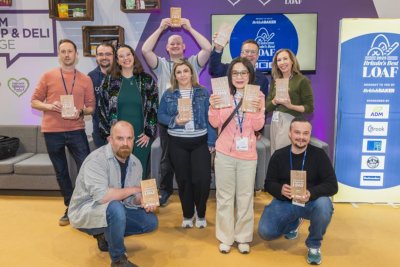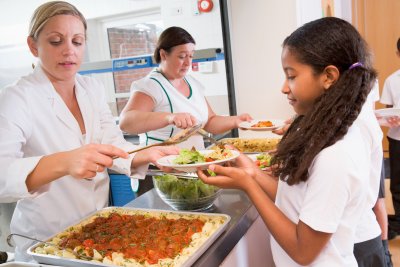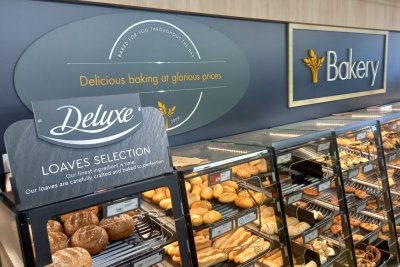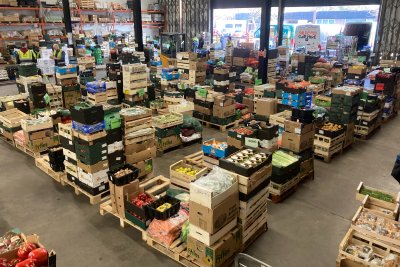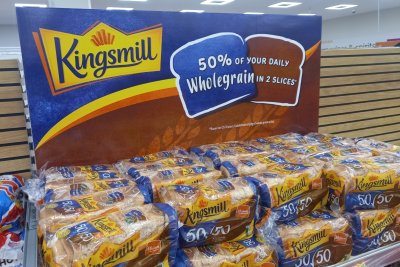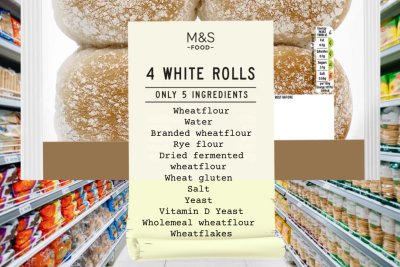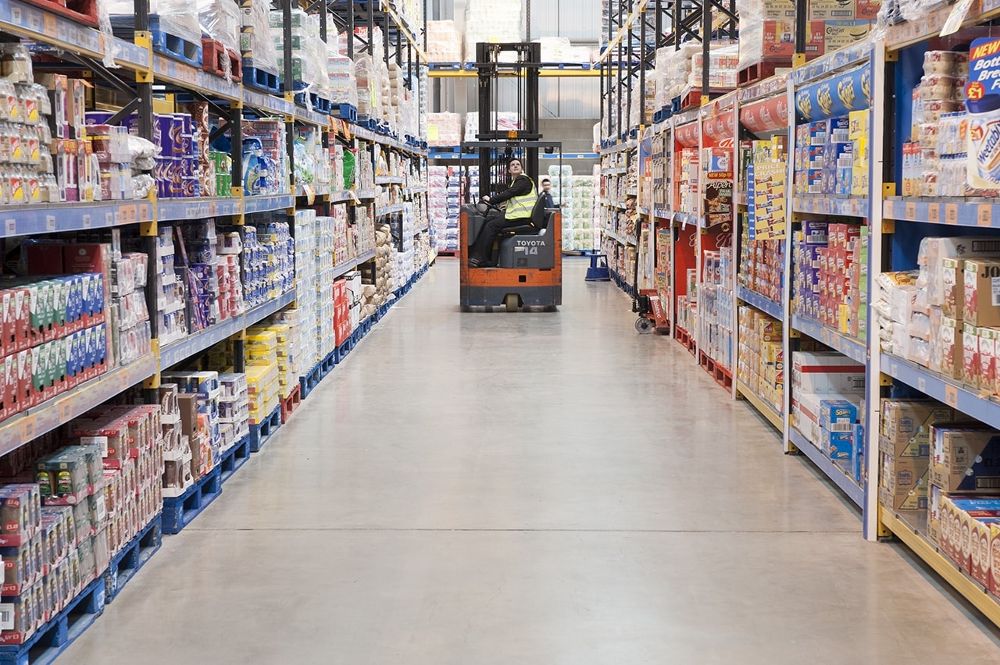 Photo credit: Bestway wholesale
Photo credit: Bestway wholesale
Wholesalers can help keep communities fed through Covid-19 and beyond
Food wholesalers and local shops are the unsung heroes of Covid-19. Let's help them play their part in keeping communities fed, says retail specialist Stephanie Rice.
Food retail specialist Stephanie Rice has been helping the London Borough of Southwark to meet the huge demand for emergency food aid. Southwark is already feeding 1,200 vulnerable people per week, facilitated by a purchasing contract with the wholesaler Bestway. She argues that this cost-effective model could be rapidly scaled up across London and replicated across the UK, to make a significant contribution to keeping hundreds of thousands of vulnerable people well fed.
Download her wholesale food guidance for emergency food responders here, written for a London audience but adaptable for other local authorities, Local Resilience Forums and local hubs.
Sustain's strategic guidance to local authorities and LRF hubs on identifying and categorising vulnerable people, triaging needs and directing people to a suite of possible financial and food responses can be downloaded here.
The Covid-19 coronavirus can be compared to a pot of blue dye that has been poured over our country, a litmus test that has revealed a food crisis that’s far greater than anyone could have imagined. In the space of just three weeks, hundreds of thousands of people who had little or no safety net have been asking for help to be fed as the infectious disease robs them of their livelihood and freedoms.
The situation will continue to get worse as more people’s economic or personal situation takes a downturn and they fall into vulnerability. This situation is being patched up in the short term by government food parcels for the shielded, and emergency food aid for people housebound or struggling to access basic necessities for other reasons, but is not going to be resolved through charitable food donations alone. The tremendous burden of economic vulnerability has not yet been adequately addressed and a new light needs to be shone on food poverty, which has for the first time become achingly visible.
This massive increase in scale of need is shattering the fragmented response that our country has previously taken to addressing household food insecurity. The existing system now needs to be shored up with a commercial and local partnership response to feeding hundreds of thousands of vulnerable people a week. However, we also need to think strategically about what structures we are creating and how food can be accessed and paid for, during crisis and in the longer term.
The response cannot be to rely on random donations, charitable food banks, surplus stock or asking local supermarket managers to make bulk deliveries at full retail prices. All of these systems have suddenly been overwhelmed and are being held together by the heroic efforts of local authority teams, working with Local Resilience Forums and the private and voluntary sectors.
This is an overly complicated response relying on surplus and corporate altruism, expecting local teams to improvise with stocks of perishable foods such as short shelf-life bananas, yoghurts or a bulk delivery of unfamiliar surplus speciality foods. There is a huge amount or resource being spent inefficiently by local authority teams on performing the role of supermarket buyers who have little experience, negotiating power or connections.
Neither can a satisfactory solution be achieved by channelling demand into the nine top multiple retailers. National Government has effectively prioritised the majority of food and drink supply to the already dominant major retailers. The queues have grown, demand for supermarket home delivery has soared beyond capacity, and the top multiples are enjoying a gigantic publicly subsidised windfall whilst diverse and neighbourhood retail struggles on.
In the same way as local authorities and Local Resilience Forums cannot cope with the huge increase in vulnerable people seeking help, nor can supermarkets cope with the huge increase in demand for home delivery. They are now at full capacity and are directing customers to shop in the stores – not realistic for vulnerable, sick or housebound people most in need. Once again, local authorities and Local Resilience Forums are being expected to pick up the tab by setting up elaborate call centres and volunteering systems to arrange volunteer shoppers and secure payment schemes.
Meanwhile, why did we accept the mass closure of foodservice (the biggest employer in food) whereas other EU countries did NOT do that, thereby retaining diverse food supply chains? Sustain has dealt elsewhere with the possibilities offered by re-opening the nation’s kitchens to provide nutritious pre-prepared meals to older and housebound people.
All of these routes are important and none will work on their own. Feeding hundreds of thousands of people takes a diverse approach that makes the best of existing assets reaching diverse communities.
I’m here to remind emergency food responders of the hugely important role that wholesalers can play in providing a local and national solution. There seems to be a lack of understanding of their role at government level of how these support local communities, supplying thousands of convenience stores, care homes, caterers and foodservice providers all over the country.
Convenience stores have become unsung heroes of Covid-19. New customers are realising that their local shop is able to stay open, does not have long queues and will help their elderly customers.
These shops do sell healthier options along with a wide range of groceries and they will always be part of their local community. It’s the convenience sector which is in growth now as customers stay local. And it is wholesalers and cash-and-carries that are keeping them supplied.
Bestway is the largest private cash and carry in the UK. They have a duty of care to their customers and their consumers. They have a key role to play in helping build a sustainable future for supporting vulnerable people to access the food they need, along with Booker and Makro, the UK’s leading wholesalers.
I have seen how wholesalers are able to help meet the huge demand. The London Borough of Southwark is already feeding 1,200 individuals a week with a home delivery system organised with Bestway, working with a local authority contract. If you scale this up, this system could feed nearly 36,000 customers in London alone, or more than 400,000 across the 350 local authorities in the UK.
This downloadable briefing provides advice tailored to London’s local authorities and Local Resilience Forums, based on our experience of integrating wholesale supply into the Covid-19 emergency food response. It also provides recommendations on what could be done to quickly scale up orders, availability and home delivery. The principles can be applied anywhere. It sets out key steps and considerations under the following headings:
- Triage the need and define your customer
- Keep it simple
- Use the Crown Commercial Service Wholesale agreement for ambient food
- Consolidate fruit, veg and chilled orders through wholesale markets and local markets
- Work with wholesalers: Bestway case study
- Manage home delivery
This is a practical response, connecting up existing assets, skills, resources and collaborative contracts in a sensible and cost-effective way. I believe that this process is hugely scalable and can make a real difference to feeding the vulnerable, not just now but in the future.
Stephanie Rice is founder of Rice Marketing

Coronavirus Food Alert: Sustain's work on food resilience in the COVID-19 coronavirus pandemic.We are helping secure food for vulnerable people and supporting local emergency responses.
Sustain
The Green House
244-254 Cambridge Heath Road
London E2 9DA
020 3559 6777
sustain@sustainweb.org
Sustain advocates food and agriculture policies and practices that enhance the health and welfare of people and animals, improve the working and living environment, promote equity and enrich society and culture.
© Sustain 2025
Registered charity (no. 1018643)
Data privacy & cookies
Icons by Icons8


